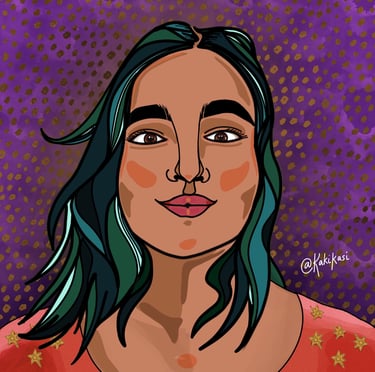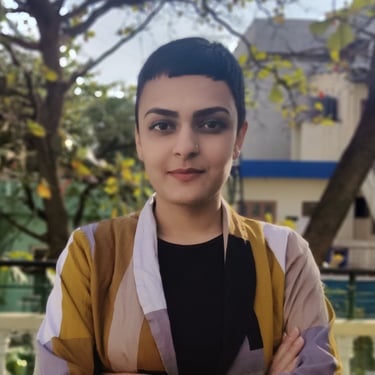About Us
As we live through the violence of genocide, caste apartheid, militarised borders, gendered repression, ecological collapse, rising authoritarianism, and a growing surveillance state, we are also witnessing a deepening investment in punishment, control and fear.
Across India and the UK (where we're based), young people, students, organisers, journalists, and entire communities are being criminalised for resisting the status quo. Dalit, Bahujan, and Adivasi communities are punished for asserting dignity. Queer, trans, disabled, and poor people are made disposable in the name of “order” and “justice" and Muslim communities and migrants are scapegoated to uphold these systems of fear and control. Conflict becomes criminal. Harm becomes a reason to exile.
Alternative Justice exists because we believe another way is possible.
Carceral logics - the belief that harm must be met with punishment, that safety requires control, that difference is dangerous - are everywhere. Not only in police stations or courtrooms, but in our schools, NGOs, families, relationships. They show up in how we avoid conflict, how we silence each other, how we disappear those who make mistakes.
We are a space committed to interrupting carceral responses to conflict, harm and systemic violence. Rooted in the frameworks of restorative and transformative justice, our work is relational, political, and grounded in collective care.
Whether you’re holding a rupture in your community, seeking tools to move through conflict differently, or reimagining justice beyond disposability, we hope this can be a space of support for you, a space of reflection and of practice.
Because the world we want will not be built through punishment.
It will be built through relationship, repair and radical care.
Who We Are
We are a collective of practitioners committed to a refusal of carceral ways of thinking and being, offering support that is relational, context-specific and grounded in the slow work of repair. We believe that harm is not just interpersonal. The systems we live within shape how we experience and enact harm. But we also know that harm doesn’t only show up in large-scale moments of violence. It lives in our silences, in avoidance, in small everyday interactions that often go unnamed. Tending to those smaller, interpersonal moments - the everyday conflicts, discomforts and misunderstandings - is part of how we prevent deeper harms. It’s how we practice a different way of being with each other that is rooted in relationship rather than retribution.
This work is slow. It asks us to sit with discomfort, to take responsibility, and to stretch ourselves and stay open, especially when it would be easier to turn away. But it also offers us the chance to build relationships and communities that are more honest, more resilient and more alive.
Nishma
Nishma (she/they) has been a facilitator, educator and organiser for the last 11 years, working in movements and communities to transform oppressive structures. She is originally from and currently living in London with roots and community in Gujarat and Mumbai. Nishma’s work seeks to prefigure the liberatory frameworks she hopes to see in the world – it is emergent and exists in the form of ‘experiments’ or ‘imagination practices’.
In addition to their practice at Alternative Justice, they also co-founded ROT Collective, a radical South Asian collective creating space for resistance, solidarity and transformation and lead Healing Justice Ldn's Movement Medicine programme.
Core Organisers
Dee
Dee (they/them) is a facilitator and practitioner of restorative and transformative justice based in India. They support individuals, communities, organisations, and movement spaces to navigate conflict, address harm, and build relationships rooted in care and accountability. Dee initiated Alternative Justice in 2020. Their practice has included facilitating restorative circles and reintegration processes with young people involved in the juvenile justice system in Bengaluru, supporting community responses to intimate partner harm and gender-based violence, and building infrastructures for conflict transformation and collective care within feminist organisations and movement networks in India and beyond.
Through Tending Futures - a liberatory, relational, and embodied learning space they co-lead - Dee also nurtures intergenerational practices of learning and imagination with young people.




